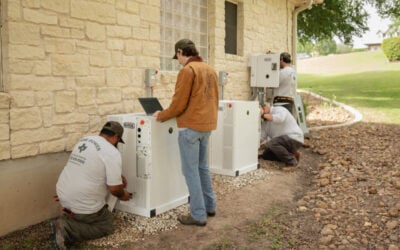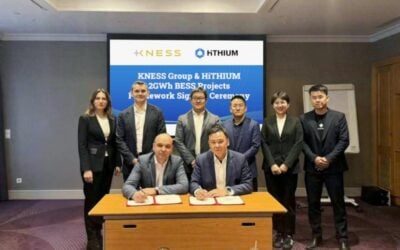
Three companies, Ultion Technologies, Ultium Cells and SK On have recently announced plans to begin manufacturing lithium iron phosphate (LFP) battery cells in the US.
The announcements coincide with a heightened focus on domestic manufacturing following the signing of the US budget reconciliation bill into law.
Under the FEOC regulations, starting in 2026, at least 55% of a project’s costs must come from non-prohibited foreign entities to qualify for investment tax credit (ITC) incentives, increasing to 75% by 2030 and later.
These three companies add to a recent string of announcements from companies looking to manufacture cells domestically in the aftermath of the signing into law of the ‘One Big Beautiful Bill Act’.
Try Premium for just $1
- Full premium access for the first month at only $1
- Converts to an annual rate after 30 days unless cancelled
- Cancel anytime during the trial period
Premium Benefits
- Expert industry analysis and interviews
- Digital access to PV Tech Power journal
- Exclusive event discounts
Or get the full Premium subscription right away
Or continue reading this article for free
Ultion secures funding for LFP manufacturing
Private battery technology company Ultion Technologies has closed a Series A funding round to accelerate US production of lithium iron phosphate (LFP) batteries.
Torus, based in Utah, led the funding round, with support from other mission-aligned investors such as Nevada’s Battle Born Venture, a venture capital programme managed by the Governor’s Office of Economic Development (GOED).
Ultion said its batteries reduce dependence on foreign imports and improve supply chain resilience.
Notably, Torus is also a customer of Ultion. The company’s CEO, Nate Walkingshaw, said of the funding, “As both an investor and customer, we understand the risks of depending on overseas battery suppliers.”
Ultion’s Nevada facility manufactures advanced LFP batteries primarily from a domestic supply chain, with plans to achieve full domestic sourcing soon. The Series A funding will help Ultion expand its domestic production capacity “more than fivefold.”
Ultion also assembled the LFP cells for Canada-based First Phosphate, which recently produced commercial-grade LFP 18650 format battery cells using “North American-sourced critical minerals.”
Ultium Cells upgrading Tennessee EV plant for LFP production
Ultium Cells, the joint venture between General Motors and LG Energy Solution, is planning to upgrade its Spring Hill, Tennessee battery cell manufacturing facility to scale production of LFP cells.
The upgrade builds on a US$2.3 billion investment first announced in 2021. Ultium stated that the conversion of battery cell lines at Spring Hill to produce LFP cells will start later this year, with commercial production anticipated by late 2027.
Spring Hill was built to double Ultium’s production of nickel manganese cobalt (NMC) battery cells for GM vehicles such as the Cadillac LYRIQ.
The company said the facility has been designed to allow for the quick integration and production of multiple cell chemistries. Ultium’s Warren, Ohio plant, meanwhile, will continue to produce NMC cells.
GM further stated that with LFP technology, it is “targeting significant battery pack cost savings compared to today’s high-nickel battery pack while increasing consumer EV choice.”
In 2022, GM launched an energy storage and energy management solutions division, GM Energy. That division launched with the intention of providing three products: new residential and commercial & industrial energy storage and management solutions, Ultium Home and Ultium Commercial.
LG ES recently began operating its LFP cell factory in Holland, Michigan. Originally, the factory was also set up with production lines for electric vehicle (EV) battery cells, but will be reconfigured to focus on mass production of energy storage system (ESS) cells.
SK On signs MOU with L&F for US LFP manufacturing
South Korean companies SK On and L&F have signed a memorandum of understanding (MOU) on the supply of LFP cathode materials for the North American market.
SK On says the partnership with L&F, a leading battery materials producer in South Korea, is aimed at meeting increasing demand for LFP batteries in the US. The company is looking to boost its presence in the ESS market.
The agreement details plans for the two companies to discuss specifics, including supply volume and timeframe, aiming to establish a mid- to long-term partnership.
SK On intends to build LFP battery manufacturing by upgrading current production lines, aligning with its localisation efforts.
The company currently operates two battery plants in the US and intends to build four more with its partners. Once fully operational, SK On says its annual production capacity in the US is projected to be more than 180GWh.
Youngkee Shin, Head of Procurement at SK On, said of the MOU: “This MoU marks a significant milestone in boosting SK On’s LFP battery value chain and advancing our entry into the North American ESS market.”
Youngkee continued, “We aim to establish a strong foundation for US-made LFP batteries.”





